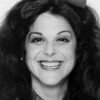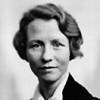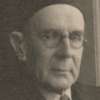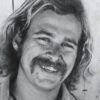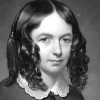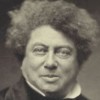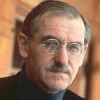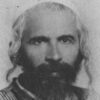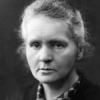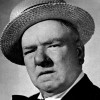It is so hard for us little human beings to accept this deal that we get. It’s really crazy, isn’t it? We get to live, then we have to die. What we put into every moment is all we have.
Quotations about:
life
Note not all quotations have been tagged, so Search may find additional quotes on this topic.
Life altogether is but a crumbling ruin when we turn to look behind: a shattered column here, where a massive portal stood; the broken shaft of a window to mark my lady’s bower; and a moldering heap of blackened stones where the glowing flames once leaped, and over all the tinted lichen and the ivy clinging green.
Jerome K. Jerome (1859-1927) English writer, humorist [Jerome Klapka Jerome]
Idle Thoughts of an Idle Fellow, “On Memory” (1886)
(Source)
First published in Home Chimes (1885-09-26).
GARCIN: I died too soon. I wasn’t allowed time to — to do my deeds.
INEZ: One always dies too soon — or too late. And yet one’s whole life is complete at that moment, with a line drawn neatly under it, ready for the summing up. You are — your life, and nothing else.
“How wonderful to be alive,” he thought. “But why does it always hurt?”
Boris Pasternak (1890-1960) Russian poet, novelist, and literary translator
Doctor Zhivago [До́ктор Жива́го], Part 1, ch. 1 “The Five O’Clock Express,” sec. 4 [Nika] (1955) [tr. Hayward & Harari (1958), US ed.]
(Source)
Alternate translations:
"How wonderful to be alive," he thought. "But why does it always have to be so painful?"
[tr. Hayward & Harari (1958), UK ed.]
"How good it is in this world!" he thought. "But why does it always come out so painful?"
[tr. Pevear & Volokhonsky (2010)]
Life was given me as a favour; I may consequently give it back, when it is no longer so.
[La vie m’a été donnée comme une faveur ; je puis donc la rendre lorsqu’elle ne l’est plus.]
Charles-Lewis de Secondat, Baron de Montesquieu (1689-1755) French political philosopher
Persian Letters [Lettres Persanes], Letter 76, Usbek to Ibben (1721) [tr. Ozell (1760 ed.), No. 77]
(Source)
(Source (French)). Alternate translations:
Life was given to me as a favour; I may then return it, when it is no more so.
[tr. Floyd (1762)]
Life was given me as a blessing; when it ceases to be so I can give it up.
[tr. Davidson (1891)]
Life was bestowed upon me as a favor; I may then give it back when it is a favor no longer.
[tr. Betts (1897)]
Life has been given to me as a favor, which I can return when it is that no longer.
[tr. Healy (1964)]
Life was given to me as a kind of favor; when it ceases to be that, I can put an end to it.
[tr. MacKenzie (2014)]
Life is a flame that is always burning itself out; but it catches fire again every time a child is born.
George Bernard Shaw (1856-1950) British playwright and critic
“The Adventures of the Black Girl in Her Search for God,” Short Stories, Scraps, and Shavings (1932)
(Source)
EDIBLE, adj. Good to eat, and wholesome to digest, as a worm to a toad, a toad to a snake, a snake to a pig, a pig to a man, and a man to a worm.
Ambrose Bierce (1842-1914?) American writer and journalist
“Edible,” The Cynic’s Word Book (1906)
(Source)
Included in The Devil's Dictionary (1911). Originally published in the "Devil's Dictionary" column in the San Francisco Wasp (1882-12-23).
It has been one of the defects of theologians at all times to over-estimate the importance of our planet. No doubt this was natural enough in the days before Copernicus when it was thought that the heavens revolve about the earth. But since Copernicus and still more since the modern exploration of distant regions, this pre-occupation with the earth has become rather parochial. If the universe had a Creator, it is hardly reasonable to suppose that He was specially interested in our little corner. And, if He was not, His values must have been different from ours, since in the immense majority of regions life is impossible.
Bertrand Russell (1872-1970) English mathematician and philosopher
“Is There a God?” (1952)
(Source)
Essay commissioned by Illustrated magazine in 1952, but never published there. First publication in Russell, Last Philosophical Testament, 1943-68 (1997) [ed. Slater/Köllner].
For in and out, above, about, below,
‘Tis nothing but a Magic Shadow-show,
Play’d in a Box whose Candle is the Sun,
Round which we Phantom Figures come and go.Omar Khayyám (1048-1123) Persian poet, mathematician, philosopher, astronomer [عمر خیام]
Rubáiyát [رباعیات], Bod. # 108 [tr. FitzGerald, 1st ed. (1859), # 46]
(Source)
The fanúsi khiyál, was an Indian magic lantern still used in Fitzgerald's day, "the cylindrical Interior being painted with various Figures, and so lightly poised and ventilated as to revolve round the candle lighted within."
Alternate translations:
Yon rolling heavens, at which we gaze bewildered,
Are but the image of a magic lanthorn;
The sun is the candle, the world the shade,
And we the images which flit therein.
[tr. Cowell (1858), # 28]
We are no other than a moving row
Of visionary Shapes that come and go
Round with this Sun-illumin'd Lantern held
In Midnight by the Master of the Show.
[tr. FitzGerald, 2nd Ed (1868), # 73]
We are no other than a moving row
Of Magic Shadow-shapes that come and go
Round with the Sun-illumin'd Lantern held
In Midnight by the Master of the Show.
[tr. FitzGerald, 3rd ed. (1872), # 68; and subsequent eds.]
This vault of heaven under which we move in a vain shadow, may be likened unto a lantern; the sun is the focus, and we, like the figures, live there in amazement.
[tr. McCarthy (1879), # 230]
These circling heavens, which make us so dismayed,
I liken to a lamp's revolving shade,
The sun the candlestick, the earth the shade,
And men the trembling forms thereon portrayed.
[tr. Whinfield (1882), # 165]
This wheel of heaven, which makes us all afraid,
I liken to a lamp's revolving shade,
The sun the candlestick, the earth the shade,
And men the trembling forms thereon portrayed.
[tr. Whinfield (1883), # 310]
A Turning Magic Lantern show this World,
Around the Sun as Candle swiftly whirled,
While mortals are but Phantom Figures traced
Upon the Shade, forever Onward hurled.
[tr. Garner (1887), 9.4]
This vault of Heaven at which we gaze astounded,
May by a painted lantern be expounded:
The light's the Sun, the lantern is the World,
And We the figures whirling dazed around it!
[tr. M. K. (1888)]
This vault of heaven, beneath which we stand bewildered,
we know to be a sort of magic. lantern:
know thou that the sun is the lamp flame and the universe is the lamp,
we are like figures that revolve in it.
[tr. Heron-Allen (1898), # 108]
This heavenly dome, where we distracted dwell,
Is likest to a magic lantern made;
The sun the candle and the world the screen,
And we the images that flit and fade.
[tr. Cadell (1899), # 125]
Passionate particles of dust and sun,
Run your brief race, nor ask why it is run --
We are but shadow-pictures, voices, dreams;
Perchance they make and break us -- just for fun.
[tr. Le Gallienne (1902)]
This wheel of Heaven which we amazed discern.
Is like a Chinese lantern, as we learn;
The Sun the lamp, the World the lantern is.
And we like figures are that on it turn.
[tr. Thompson (1906), # 353]
This vault of Heaven, 'neath which like fools we sit,
Is but a magic-lantern, dimly lit:
The sun the flame, the Universe the lamp,
We are the figures that revolve in it.
[tr. Talbot (1908), # 108]
This revolving sphere in which we stand bewildered
Is like unto a Chinese lantern,
The sun, its lamp and its shade the world,
We, the figures moving within it.
[tr. Rosen (1928), # 207]
Methinks this Wheel at which we gape and stare,
Is Chinese lantern -- like we buy at fair;
The lamp is Sun, and paper-shade the world,
And we the pictures whirling unaware.
[tr. Tirtha (1941), # 2.5]
This vault underneath which we lie bemused
Is, so to speak, God's magic shadow show
With sun for lamp, the world as a wide screen
For countless lie-rehearsing silhouettes.
[tr. Graves & Ali-Shah (1967)]
This Universal wheel, this merry-go-round
In our imagination we have found
The sun a flame, in the Cosmic lantern bound
We are mere ghosts, revolving, the flame surround.
[tr. Shahriari (1998), literal]
In our imagination, the Cosmic Wheel
Will cause us pain and cause us heal,
We find our source give life and steal,
We are phantoms that think and feel.
[tr. Shahriari (1998), figurative]
Life in itself
Is nothing,
An empty cup, a flight of uncarpeted stairs.
The task of war is to destroy life; the task of peace is to create it; to organize labor so that it shall not incapacitate men for leisure; to establish justice as a foundation for personality; to unfold in men the capacity for noble joy and profound sorrow; to liberate them for the passion of love, the perception of beauty, the contemplation of truth. Of all these things war is the enemy.
G. Lowes Dickinson (1862-1932) British political scientist and philosopher [Goldsworthy "Goldie" Lowes Dickinson]
“The War and the Way Out: A Further Consideration,” sec. 3, Atlantic Monthly (1915-04)
(Source)
But not only creativeness and enjoyment are meaningful. If there is a meaning in life at all, then there must be a meaning in suffering. Suffering is an ineradicable part of life, even as fate and death. Without suffering and death human life cannot be complete.
Viktor Frankl (1905-1997) German-American psychologist, writer
Man’s Search for Meaning [Trotzdem Ja zum Leben Sagen], Part 1 (1946) [tr. Lasch (1959)]
(Source)
About one-half the discumfert ov this life iz the result ov gitting tired ov ourselfs.
[About one-half the discomfort of this life is the result of getting tired of ourselves.]
Josh Billings (1818-1885) American humorist, aphorist [pseud. of Henry Wheeler Shaw]
Everybody’s Friend, Or; Josh Billing’s Encyclopedia and Proverbial Philosophy of Wit and Humor, ch. 132 “Affurisms: Chips” (1874)
(Source)
How dull it is to pause, to make an end,
To rust unburnish’d, not to shine in use!
As tho’ to breathe were life. Life piled on life
Were all too little, and of one to me
Little remains: but every hour is saved
From that eternal silence, something more,
A bringer of new things; and vile it were
For some three suns to store and hoard myself,
And this gray spirit yearning in desire
To follow knowledge, like a sinking star,
Beyond the utmost bound of human thought.
Life is truly known only to those who suffer, lose, endure adversity, and stumble from defeat to defeat.
Ryszard Kapuściński (1932-2007) Polish journalist, photographer, poet, author
“A Warsaw Diary,” Granta Magazine, No. 15 (1985 Spring)
(Source)
Life is like arriving late for a movie, having to figure out what was going on without bothering everybody with a lot of questions, and then being unexpectedly called away before you find out how it ends.
Joseph Campbell (1904-1987) American writer, professor of literature
(Attributed)
To live in this world
you must be able
to do three things:
to love what is mortal;
to hold itagainst your bones knowing
your own life depends on it;
and, when the time comes to let it go,
to let it go.Mary Oliver (1935-2019) American poet
“In Blackwater Woods,” American Primitive (1983)
(Source)
Originally published in Yankee Magazine.
Life is much more manageable when thought of as a scavenger hunt as opposed to a surprise party.
Jimmy Buffett (1946-2023) American musician and singer-songwriter [James William Buffett]
A Pirate Looks at Fifty, Sec. 11 “The Islands” (1998)
(Source)
Listen, are you breathing just a little and calling it a life?
Mary Oliver (1935-2019) American poet
“Have You Ever Tried to Enter the Long Black Branches?” West Wind (1997)
(Source)
The world is a library of strange and wonderful books, and sometimes we just need to go prowling through the stacks.
Michael Dirda (b. 1948) American book critic
Book by Book: Notes on Reading and Life, ch. 8 (2005)
(Source)
Life is like a ten-speed bicycle. Most of us have gears that we never use.
Charles Schulz (1922-2000) American cartoonist
Peanuts [Linus] (1981-05-29)
(Source)
The phrase was also used as the title in a Peanuts collection of Linus' wisdom, Life Is Like A Ten-Speed Bicycle (1997), which included this strip.
In order to be well received, an actor need not be on stage all the way through the play, as long as he performs satisfactorily in the scenes in which his character appears. In the same way, a wise man need not feel that he must loiter to the very end of the very last act. To demonstrate virtue and excellent character, a short life is long enough.
[Neque enim histrioni, ut placeat, peragenda fabula est, modo in quocunque fuerit actu probetur; neque sapientibus usque ad “Plaudite” veniendum est. Breve enim tempus aetatis satis longum est ad bene honesteque vivendum.]Marcus Tullius Cicero (106-43 BC) Roman orator, statesman, philosopher
De Senectute [Cato Maior; On Old Age], ch. 19 / sec. 70 (19.70) (44 BC) [tr. Cobbold (2012)]
(Source)
Many older translators refer to the plaudite, which was was the last word of many Latin plays, particularly those of Terence and Plautus. It was basically a formal cue for the audience to applaud. Waiting for the plaudite is the same as waiting for the end of the play, the fall of the curtain.
(Source (Latin)). Alternate translations:
I wolde that ye knowe that as the poete makith not onely by versys of a fable in his comedye callid an enterlude to the intente bycause that it please to hym that pleyeth it in the game. But the poete makith onely his comedye and enterlude to the ende bycause that in every pagent he be preysed and commended of every man aftir his playe. And the wise man also ought not to desire to lyve tylle that he saye "That is to witt I will no lenger of my life." For a short and a litle tyme of age is long for to lyve wele and honestly.
[tr. Worcester/Worcester/Scrope (1481)]
For he that is a stage-player needeth not of necessity to be an actor in the interlude or comedy until the last end thereof (to delight the beholders), but in what act of the same soever he playeth or chanceth to be, he must so expressly handle and play his part, that he may win praise and commendation; neither should a wise man live till the plaudite be stricken up. For a short space and time of life is long enough to live well and honestly, and in whatsoever age we be in, it is sufficient to have lived therein godly and virtuously.
[tr. Newton (1569)]
For a good actor is not applauded in the midst of a Scene, so a wise mans praise comes not till the end. The time of our age is short indeed; but long enough to live well and honestly.
[tr. Austin (1648), ch. 21]
When a good Actor doth his part present,
In ev'ry Act he our attention draws,
That at the last he may find just applause,
So (though but short) yet we must learn the art
Of virtue, on this Stage to act our part;
True wisdome must our actions so direct,
Not only the last Plaudite to expect.
[tr. Denham (1669)]
A short Space of time is long enough, if constantly employed in the Pursuit of Honour and Virtue.
[tr. Hemming (1716)]
And as the Player may be applauded in every Scene, tho' to give true Satisfaction he must finish his Play; so with the wise Man, he lives approv'd by all till his last Plaudit. For the time of Man's life is short, yet it is long enough to live well.
[tr. J. D. (1744)]
No Man expects of any one Actor on the Theatre, that he should perform all the Parts of the Piece himself: One Role only is committed to him, and whatever that be, if he acts it well, he is applauded. In the same Manner, it is not the Part of a wise Man, to desire to be busy in these Scenes to the last Plaudit. A short Term may be long enough to live it well and honourably.
[tr. Logan (1744)]
It is in life as on the stage, where it is not necessary in order to be approved, that the actor's part should continue to the conclusion of the drama; it is sufficient, in whatever scene he shall make his final exit, that he supports the character assigned him with deserved applause. The truth is, a small portion of time is abundantly adequate to the purposes of honour and virtue.
[tr. Melmoth (1773)]
For neither must a play be gone all through by a player, that he may please; it is only needful that he be approved in whatsoever act he shall have been; nor should a wise man live quite to Plaudite. For a short space of time is long enough to live virtuously and honourably.
[Cornish Bros. ed. (1847)]
For neither need the drama be performed entire by the actor, in order to give satisfaction, provided he be approved in whatever act he may be: nor need the wise man live till the plaudite. For the short period of life is long enough for living well and honourably.
[tr. Edmonds (1874)]
In order to give pleasure to the audience, the actor need not finish the play; he may win approval in whatever act he takes part in; nor need the wise man remain on the stage till the closing plaudit. A brief time is long enough to live well and honorably.
[tr. Peabody (1884)]
An actor, in order to earn approval, is not bound to perform the play from beginning to end; let him only satisfy the audience in whatever act he appears. Nor need a wise man go on to the concluding "plaudite." For a short term of life is long enough for living well and honourably.
[tr. Shuckburgh (1895)]
Our span of life is brief, but it is long enough for us to live well and honestly.
[ed. Harbottle (1906)]
Why ev'n the actor to secure applause
Need not play to the end: if but he do
His best, he will be cheered: if wise, he'll stop
Before he reach the final "Plaudite."
A little time's enough, in which to live
A good and honest life.
[tr. Allison (1916)]
The actor, for instance, to please his audience need not appear in every act to the very end; it is enough if he is approved in the parts in which he plays; and so it is not necessary for the wise man to stay on this mortal stage to the last fall of the curtain. For even if the allotted space of life be short, it is long enough in which to live honourably and well.
[tr. Falconer (1923)]
An actor, in order to find favor, does not have to take part all the way through a play; he need only prove himself in any act in which he may appear; similarly the wise and good man does not have to keep going until the curtain is rung down. A brief span of years is quite long enough for living a good and honorable life.
[tr. Copley (1967)]
An actor does not have to appear in the last part of the movie: he can earn good reviews from what he does in any part of it. And neither must life be drawn out until some venerable time for the final curtain. A short time of life is enough to live well and honorably.
[tr. Gerberding (2014)]
During a drama an actor has no need
To be cheered but in the parts he plays
while on the stage of mortal life, indeed,
A man of discernment never stays
Until the last applause. A short life is always
Long enough to be lived honestly and well.
[tr. Bozzi (2015)]
An actor does not need to remain on stage throughout the play. It is enough that he appears in the appropriate acts. Likewise, a wise man need not stay on the stage of this world until the audience applauds at the end. The time allotted to our lives may be short, but it is long enough to live honestly and decently.
[tr. Freeman (2016)]
Sorrow is knowledge: they who know the most
Must mourn the deepest o’er the fatal truth,
The Tree of Knowledge is not that of Life.George Gordon, Lord Byron (1788-1824) English poet
“Manfred,” Act 1, sc. 1 [Manfred] (1817)
(Source)
LEAR: When we are born, we cry that we are come
To this great stage of fools.William Shakespeare (1564-1616) English dramatist and poet
King Lear, Act 4, sc. 6, l. 200ff (4.6.200-201) (1606)
(Source)
If you can’t control your reproduction, you can’t control your life.
Joycelyn Elders (b. 1933) American pediatrician, public health administrator, academic
Interview by Claudia Dreifus, New York Times (1994-01-30)
(Source)
A frequent phrase of hers.
A person who lacks the means, within himself, to live a good and happy life will find any period of his existence wearisome. But rely for life’s blessings on your own resources, and you will not take a gloomy view of any of the inevitable consequences of nature’s laws. Everyone hopes to attain an advanced age; yet when it comes they all complain! So foolishly inconsistent and perverse can people be.
[Quibus enim nihil est in ipsis opis ad bene beateque vivendum, eis omnis aetas gravis est; qui autem omnia bona a se ipsi petunt, eis nihil malum potest videri quod naturae necessitas adferat. Quo in genere est in primis senectus, quam ut adipiscantur omnes optant, eandem accusant adeptam; tanta est stultitiae inconstantia atque perversitas.]
Marcus Tullius Cicero (106-43 BC) Roman orator, statesman, philosopher
De Senectute [Cato Maior; On Old Age], ch. 2 / sec. 4 (2.4) [Cato] (44 BC) [tr. Grant (1960, 1971 ed.)]
(Source)
(Source (Latin)). Alternate translations:
For eche of thies ages which men name Childhode, adolescence, yongth, virilite, manhode & olde age semyn to be hevy & noxous to men the which in them silf have nothyng that may help & socoure them to lyve goodly & blessidly as bee, the which excercisen sciences & vertues & good werkis, but as to suche men which sechyn & fyndyn in themsilf alle the goods & thyngis which belongyn wele & blessidly for to lyve, ther is nothyng that comyth to them in age by the defaute of nature that may seme unto them evyll nor noxous. It is certayne that olde age is suche that it serchith & fyndyth in it self all the goodnesses whch longen to live wel & blyssidly, and yet is olde age such that alle men desyre to come untyll hit, And never the lesse the mutablenes & evyl dysposicion of men it is so grete in oure dayes that they blamyn olde age whan they be come therto by cause that then they may not use delectacions.
[tr. Worcester/Worcester/Scrope (1481)]
For they that have no power, pith of wit, help, way nor virtue in themselves to conduct and bring them to a good and blessed life, unto such as these be, all their age is cumbersome and unpleasant. But unto such as lead their lives virtuously, measuring all their actions by the square of reason, and have their minds with all good gifts of grace beautified and garnished, there is nothing thought nor deemed evil that cometh by necessity of nature. Of the which sort old age is principally to be considered, unto which all men wish to arrive, and yet when they have their desire, they accuse it as painful, sickly, unpleasant and tedious, such is the brainless unconstancy, foolish sottage, and perverse overthwartness of wayward people.
[tr. Newton (1569)]
For that age is only grievous to those that have no taste of wisdome and learning in themselves to make them live happily: but to them which see all perfection and consolation from their own experience, nothing can seem heavy which the necessity of nature bringeth: of which sort old age is chief, which all desire to obtain, and blame being obtained; such is their unconstancy, foolishnesse and perversity.
[tr. Austin (1648)]
For to those who have nothing within themselves capable of making Life happy, and satisfactory, no wonder if every Stage of it should prove irksome, and vexatious: but, to those who derive all their satisfaction from an easy mind, nothing can seem grievous and tormenting, that proceeds from the irreversible Laws of Nature; which certainly is the case of Old Age,, whereunto though 'tis the earnest desire of all men to arrive, yet such is their unaccountable folly, and perverseness, that they are never more uneasy than when they have arrived at it.
[tr. Hemming (1716)]
All Ages are grievous to those who have not in themselves the Means of living Holy and Happy; but those who expect all Happiness from their own Virtues, don't look up on the Decay of Nature as a Hardship, whereof Old Age is the chiefest, and which all desire to attain to; but is no sooner tasted than declaim'd against. Such are the Effects of Inconstancy, Folly, and the Want of Wisdom.
[tr. J. D. (1744)]
For know this, that those who have no Aid or Support within themselves, to render their Lives easy, will find every State irksome: While such as are convinced, they must owe their Happiness to themselves, and that if they cannot find it in their own Breasts, they will never meet with it from abroad; will never consider any thing as an Evil, that is but a necessary Effect of the established Order of Nature; which Old Age most undoubtedly is. 'Tis certainly strange, that while all Men hope they may live to attain it, any should find Fault with it, when it comes their Share. Yet such is the Levity, Folly, and Perverseness of Mankind, that we see there is nothing more common.
[tr. Logan (1744)]
Those indeed who have no internal resource of happiness, will find themselves uneasy in every stage of human life: but to him who is accustomed to derive all his felicity from within himself, no state will appear as a real evil into which he is conducted by the common and regular course of nature. Now this is peculiarly the case with respect to old age : yet such is the inconsistency of human folly, that the very period which at a distance is every man's warmest wish to attain, no sooner arrives than it is equally the object of his lamentations.
[tr. Melmoth (1773)]
For to those that have nought of resource in themselves for living well and happily, every stage of life is burthensome; while to those that seek all their goods from themselves, nothing can seem an evil, which the law of Nature may bring them. In which class foremost stands old age, which all desire to attain, but arraign the same when attained; so great is the inconsistency and perverseness of folly.
[Cornish Bros. ed. (1847)]
For to those who have no resource in themselves for living well and happily, every age is burdensome; but to those who seek all good things from themselves, nothing can appear evil which the necessity of nature entails; in which class particularly is old age, which all men wish to attain, and yet they complain of it when they have attained it; so great is the inconsistency and waywardness of folly.
[tr. Edmonds (1874)]
For those who have in themselves no resources for a good and happy life, every period of life is burdensome; but to those who seek all goods from within, nothing which comes in the course of nature can seem evil. Under this head a place especially belongs to old age, which all desire to attain, yet find fault with it when they have reached it. Such is the inconsistency and perverseness of human folly.
[tr. Peabody (1884)]
But those who look for all happiness from within can never think anything bad which nature makes inevitable. In that category before anything else comes old age, to which all wish to attain, and at which all grumble when attained. Such is Folly's inconsistency and unreasonableness!
[tr. Shuckburgh (1895)]
Of course
To those who've no resources in themselves
For a good and happy life, why, every age
Is hard to bear: but those who have within
All that is needful for a life well-spent,
Can never find misfortune in the lot
That nature's laws impose. And one such lot
Is that old age must come to each and all,
Old age so fondly hoped for, when it comes,
So Oft found to be irksome. Such, alas!
Is Folly's want of reason and resolve.
[tr. Allison (1916)]
For to those who have not the means within themselves of a virtuous and happy life every age is burdensome; and, on the other hand, to those who seek all good from themselves nothing can seem evil that the laws of nature inevitably impose. To this class old age especially belongs, which all men wish to attain and yet reproach when attained; such is the inconsistency and perversity of Folly!
[tr. Falconer (1923)]
People, you see, who have no inner resources for living the good and happy life, find every age a burden. But men who seek all good from within themselves are simply unable to view as evil anything that comes about through nature’s law. Now old age, as much as anything else in this world, is such a thing. All men hope and pray to attain it; once they have attained it, they start finding fault with it.
[tr. Copley (1967)]
Some people just do not possess the optimism that would allow them to live contentedly under any circumstances: for them every stage of life is a burden. But if only they expected nothing but good for themselves, nothing that the natural passage of time brought them could seem bad. This is especially true of old age. Everybody wants to live for a long time, but when they have attained their goal, they grumble. It makes no sense -- but that’s what life is: perverse and inconsistent.
[tr. Cobbold (2012)]
Someone who doesn't have much in the way of inner resources will find all stages of life irksome, but someone whose character is in order will accept what nature brings and not complain about something perfectly natural, calling it evil. There is much nonsense bandied about old age, something which everyone wishes to reach, but which most complain about once they get there. That seems more than slightly inconsistent and perverse, doesn't it?
[tr. Gerberding (2014)]
They find every age oppressive, of course,
Who in their inner selves have no resource
To live an easy life in happiness,
But they who in themselves only find
Their own contentment and peace of mind
See no harm in nature’s due process
Whose termination inevitably
May lead to that state of senility
To which they keenly lay claim,
But once attained rather foolishly,
With malice and incongruity,
Promptly find reasons to blame.
[tr. Bozzi (2015)]
Those who lack within themselves the means for living a blessed and happy life will find any age painful. But for those who seek good things within themselves, nothing imposed on them by nature will seem troublesome. Growing older is a prime example of this. Everyone hopes to reach old age, but when it comes, most of us complain about it. People can be so foolish and inconsistent.
[tr. Freeman (2016)]
Every age is burdensome to those who have no means of living well and happily. But to those who seek all good from themselves, nothing which the necessity of nature offers can appear bad. Old age is a prime example of this sort of thing -- everyone wishes to attain it, but they always complain about it once it is attained. Such is the inconstancy and perversity of stupidity.
[tr. Robinson [@sentantiq] (2017)]
To an embalmer there are no good men and bad men. There are only dead men and live men.
H. L. Mencken (1880-1956) American writer and journalist [Henry Lewis Mencken]
A Little Book in C Major, ch. 4, § 15 (1916)
(Source)
If people knew the story of their lives how many would then elect to live them?
Cormac McCarthy (1933-2023) American novelist, playwright, screenwriter
The Crossing [Quijada] (1994)
(Source)
Often mis-cited to All the Pretty Horses (1992), the first part of the Border Trilogy (this is the second).
It is not worth living,
when we see bad men unjustly honored.
[ου γαρ άξιον λεύσσειν φάος κακούς ορώντας εκδίκως τιμωμένους.]Euripides (485?-406? BC) Greek tragic dramatist
Bellerophon [Βελλεροφῶν], frag. 293 (c. 430 BC) [tr. Collard (1997)]
(Source)
Nauck (TGF) frag. 293, Barnes frag. 129, Musgrave frag. 23. (Source (Greek)). Alternate translations:
For life's not worth retaining when we see
The wicked crown'd with undeserv'd applause.
[tr. Wodhull (1809)]
It is not worth living, if people see bad men unjustly honored.
[tr. Collard, Hargreaves, Cropp (1995)]
Life has no value when the bad are seen to thrive unjustly.
[tr. Stevens (2012)]
Giving is more joyous than receiving, not because it is a deprivation, but because in the act of giving lies the expression of my aliveness.
Erich Fromm (1900-1980) American psychoanalyst and social philosopher
The Art of Loving, ch. 2, sec. 1 (1956)
(Source)
Poor fool, what makes you promise yourself a long life, when there is not a day of it that goes by in security? Again and again, people who looked forward to a long life have been caught out over it, called away quite unexpectedly from this bodily existence. Nothing commoner than to be told, in the course of conversation, how such a man was stabbed, such a man was drowned; how one fell from a height and broke his neck, another never rose from table, another never finished his game of dice. Fire and sword, plague and murderous attack, it is always the same thing — death is the common end that awaits us all, and life can pass suddenly, like a shadow when the sun goes in.
[Ha stulte, quid cogitas te diu victurum, cum nullum diem habeas securum? Quam multi decepti sunt et insperati de corpore extracti! Quoties audisti a dicentibus, quia ille gladio cecidit, ille submersus est, ille ab alto ruens cervicem fregit, ille manducando obriguit, ille ludendo finem fecit, alius igne, alius ferro, alius peste, alius latrocinio interiit: et sic omnium finis mors est, et vita hominum tanquam umbra cito pertransit.]Thomas à Kempis (c. 1380-1471) German-Dutch priest, author
The Imitation of Christ [De Imitatione Christi], Book 1, ch. 23, v. 7 (1.23.7) (c. 1418-27) [tr. Knox-Oakley (1959)]
(Source)
(Source (Latin)). Alternate translations:
Thou art a fool, if thou think to live long, sith thou art not sure to live one day to the end. How many have been deceived through trust of long life, and suddenly have been taken out of this world or they had thought. How oft hast thou heard say that such a man was slain, and such a man was drowned, and such a man fell and broke his neck ? This man as he ate his meat was strangled, and this man as he played took his death ; one with fire, another with iron, another with sickness, and some by theft have suddenly perished ! And so the end of all men is death, for the life of man as a shadow suddenly fleeth and passeth away.
[tr. Whitford/Raynal (1530/1871)]
You are foolish if you think to live long, since you are not certain to live one day through to the end. How many have been deceived through trusting in a long life who have suddenly been taken out of the world much sooner than they had thought. How often have you heard that such a man was slain, and such a man was drowned, and such a man fell and broke his neck; this man choked on his food, and this man died in his recreation; one by fire, another by the sword, another by sickness, and some by theft have suddenly perished. And so the end of all men is death, and the life of man is as a shadow which suddenly glides and passes away.
[tr. Whitford/Gardiner (1530/1955)]
Ah foole, why dost thou think to live long, when thou canst not promise to thy selfe one day, how many have been deceived and suddenly snatcht away? How often dost thou hear these reports, such a man is slain, another is drowned, a third breaks his neck with a fall, this man died eating, and that man playing? One perished by fire, another by the sword, another of the plague, and another was slain by theeves, thus death is the end of all, and mans life passeth away like a shadow.
[tr. Page (1639), 1.23.29-31]
Does any Confidence of long Life encourage you to defer putting this good Advice in Execution speedily ? Nay, but reflect, fond Man, how little you can promise your self one poor single Day. How many Instances have you before your Eyes, or fresh in your Remembrance, of Persons miserably deluded and disappointed in this Hope, and hurried out of the Body without any warning at all? How often have you been surprized with the News of this Friend being run thro', another drowning crossing the Water, a Third breaking his Neck by a Fall, a Fourth fallen down dead at Table, or choaked with his Meat, a Fifth seized with an Apoplex at Play, a Sixth burnt in his Bed, a Seventh murthered, an Eighth killed by Thieves, a Ninth struck with Lightning, or Blasting, or Pestilence, a Tenth swallow'd up in an Earthquake. Such vast variety of Deaths surround us, and so fleeting a Shadow is the Life of a Man.
[tr. Stanhope (1696; 1706 ed.)]
Ah foolish man! why dost thou still flatter thyself with the expectation of a long life, when thou canst not be sure of a single day? How many unhappy fools, deluded by this hope, are in some unexpected moment separated from the body! How often dost thou hear, that one is slain, another is drowned, another by falling from a precipice has broken his neck, another is choaked in eating, another has dropt down dead in the exercise of some favorite diversion; and that thousands, indeed, are daily perishing by fire, by sword, by the plague, or by the violence of robbers! Thus is death common to every age; and man suddenly passeth away as a vision of the night.
[tr. Payne (1803), 1.23.8]
Ah! fool, why dost thou think to live long, when thou canst not promise to thyself one day. How many have been deceived and suddenly snatched away! How often dost thou hear these reports, Such a man is slain, another man is drowned, a third breaks his neck with a fall from some high place, this man died eating, and that man playing! One perished by fire, another by the sword, another of the plague, another was slain by thieves. Thus death is the end of all, and man's life suddenly passeth away like a shadow.
[ed. Parker (1841)]
Ah, foolish man! why dost thou think thou wilt live long, when thou canst not count upon a single day? How many souls, deluded by this hope, are, in some unexpected moment, separated from the body! How often dost thou hear, that "one is slain, another is drowned, another, by falling form a precipice, has broken his neck -- another is choaked in eating; another has dropt down dead in the exercise of some favourite diversion; and that thousands, indeed, are daily perishing by fire, by sword, by the plague, or by the violence of robbers! Thus, death is the end of all; and the life of man passeth away suddenly like a shadow.
[tr. Dibdin (1851)]
Ah, fool! why dost thou think to live long, when thou art not sure of one day? How many thinking to live long have been deceived, and snatched unexpectedly away? How often hast thou heard related, that such a one was slain by the sword; another drowned; another, from a height, broke his neck; one died eating, another playing? Some have perished by fire; some by the sword; some by pestilence; and some by robbers. And so death is the end of all; and man's life suddenly passeth away like a shadow.
[ed. Bagster (1860)]
Ah, foolish one! why thinkest thou that thou shalt live long, when thou art not sure of a single day? How many have been deceived, and suddenly have been snatched away from the body! How many times hast thou heard how one was slain by the sword, another was drowned, another falling from on high broke his neck, another died at the table, another whilst at play! One died by fire, another by the sword, another by the pestilence, another by the robber. Thus cometh death to all, and the life of men swiftly passeth away like a shadow.
[tr. Benham (1874)]
Ah! fool, why dost thou think to live long, when thou canst not promise to thyself one day. How many have been deceived and suddenly snatched away! How often dost thou hear these reports, Such a man is slain, another is drowned, a third has broken his neck with a fall, this man died eating, and that man playing! One perished by fire, another by the sword, another by the plague, another was slain by thieves. Thus death is the end of all, and man's life suddenly passeth away like a shadow.
[tr. Anon. (1901)]
Ah, foolish man, why do you plan to live long when you are not sure of living even a day? How many have been deceived and suddenly snatched away! How often have you heard of persons being killed by drownings, by fatal falls from high places, of persons dying at meals, at play, in fires, by the sword, in pestilence, or at the hands of robbers! Death is the end of everyone and the life of man quickly passes away like a shadow.
[tr. Croft/Bolton (1940)]
Ah fool, why think of living long when you have no certainty of a day? How many are mistaken and unexpectedly snatched away from the body. How often you have heard men say, he is killed by the sword, he is drowned, he broke his neck falling from a height, he choked while eating, he met his end while at play; one perished by fire, another from plague, another by a robber; and so death is the end of all; and man’s life passes suddenly like a shadow.
[tr. Daplyn (1952)]
Foolish man, how can you promise yourself a long life, when you are not certain of a single day? How many have deceived themselves in this way, and been snatched unexpectedly from life! You have often heard how this man was slain by the sword; another drowned; how another fell from a high place and broke his neck; how another died at table; how another met his end in play. One perishes by fire, another by the sword, another from disease, another at the hands of robbers. Death is the end of all men; and the life of man passes away suddenly as a shadow.
[tr. Sherley-Price (1952)]
You fool, why do you imagine you will live a long life. when you cannot be sure of a single day? Many have made this mistake and have been snatched away from life when they least expected it. So often you hear people saying that so and so has been killed in battle, and so and so drowned; another man has fallen from a height and broken his neck; one choked over a meal, another met his end in some sport. Others have died by -- fire, by violence, by sickness, by robbery -- death is the end of all, and the life of man passes by and vanishes like a shadow.
[tr. Knott (1962)]
Foolish one, why do you hope for long life when not even one day is certain? How many there are who think they will live long, but are mistaken and snatched from the body unexpectedly. How often have you heard it said: This man fell by the sword; that man was drowned; another fell and broke his neck; yet another was taken while at table and the other was at sport when the end came. One by fire, another by steel, yet another by pestilence and again another by thieves met his death. Death is the end of all men and man’s life is a shadow that quickly passes by.
[tr. Rooney (1979)]
Ah, my foolish friend! why do you think of living a long life when you are not sure of even one day? How many people are tricked and unexpectedly snatched away? How often have you heard it said that someone was murdered, someone else drowned, another broke his neck falling from a high place, yet another choked while eating, and someone else met his end while playing; one person died by fire, another from disease, and another was killed by a robber, and thus death is the end of all, and our life passes suddenly like a shadow.
[tr. Creasy (1989)]
Life, struck sharp on death,
Makes awful lightning.Elizabeth Barrett Browning (1806-1861) English poet
Aurora Leigh, Book 1, ll. 210–211 (1856)
(Source)
Writers do not live one life, they live two. There is the living and then there is the writing. There is the second tasting, the delayed reaction.
This life is a hospital in which every patient is haunted by the desire to change beds. This one wants to suffer in front of the stove, and that one believes he will recover next to the window.
[Cette vie est un hôpital où chaque malade est possédé du désir de changer de lit. Celui-ci voudrait souffrir en face du poêle, et celui-là croit qu’il guérirait à côté de la fenêtre.]Charles Baudelaire (1821-1867) French poet, essayist, art critic
Le Spleen de Paris (Petits Poèmes en Prose), No. 48 “Any Where Out of the world” (1869) [tr. Kaplan (1989)]
(Source)
The title of the original is in English, a line from Thomas Hood, "The Bridge of Sighs." It is often subtitled with the French translation, "N’importe où hors du monde," which are the final lines.
(Source (French)). Alternate translations:
Life is a hospital, in which every patient is possessed by the desire of changing his bed. One would prefer to suffer near the fire, and another is certain that he would get well if he were by the window.
[tr. Symons (<1919)]
This life is a hospital where every patient is possessed with the desire to change beds; one man would like to suffer in front of the stove, and another believes that he would recover his health beside the window.
[tr. Hamburger (1946)]
Life is a hospital where every patient is obsessed by the desire of changing beds. One would like to suffer opposite the stove, another is sure he would get well beside the window.
[tr. Varèse (1970)]
This life is a hospital where each patient is possessed with the desire of changing his bed. One would like to suffer in front of the stove, and another believes he would get well beside the windows.
[tr. Fowlie (1992)]
This life is a hospital, where each patient is possessed by the desire to change beds. That one prefers to suffer nearer the stove and this one believes he would get well next to the window.
[tr. Waldrop (2009)]
In short, I consider this world as a place which nature never designed for my permanent abode, and I look upon my departure out of it, not as being driven away from my habitation, but as leaving my inn.
[Et ex vita ita discedo tamquam ex hospitio, non tamquam e domo; commorandi enim natura devorsorium nobis, non habitandi dedit.]
Marcus Tullius Cicero (106-43 BC) Roman orator, statesman, philosopher
De Senectute [Cato Maior; On Old Age], ch. 23 / sec. 84 (23.84) (44 BC) [tr. Melmoth (1773)]
(Source)
(Source (Latin)). Alternate translations:
I departe me from this presente life as a walkyng weyfaryng man or as a voyagieng pilgryme departith from some lodgyng place or an hostellrye for to come to his owne dwellyng house. But I departe me not from this life as the lorde departeth from his owne house for this passable life is nowght ellys but as a lodgyng place or an hostellrye.
[tr. Worcester/Worcester/Scrope (1481)]
And I depart out of this life as out of an inn, and not out of a dwellinghouse. For nature hath given to us a lodging to remain and sojourn in for a time, and not to dwell in continually.
[tr. Newton (1569)]
And I depart out of this life, as from an Inne, not as from a continuall habitation; for nature hath given us a place to rest in, not to dwell in.
[tr. Austin (1648)]
Hence from an Inne, not from my home, I pass,
Since Nature meant us here no dwelling place.
[tr. Denham (1669)]
I have not frustrated the End of Nature, and am disposed to leave this life, with as much Indifference, as an Inn upon the Road; for Nature here intends us a Lodging only, not a Fixed Home or Settled Place of Habitation.
[tr. Hemming (1716)]
And now I go from this Life as from an Inn; for Nature hath given it us as a Place to rest in, but not for a continual Habitation.
[tr. J. D. (1744)]
And when the Close comes, I shall quit Life as I would an Inn, and not as a real Home. For Nature appears to me to have ordain'd this Station here for us, as a Place of Sojournment, a transitory Abode only, and not as a fixt Settlement or permanent Habitation.
[tr. Logan (1744)]
I depart out of life just as out of an inn, and not as out of my home. For Nature has given us an hotel to sojourn in, not a place to dwell in.
[Cornish Bros. ed. (1847)]
And from this life I depart as from a temporary lodging, not as from a home. For nature has assigned it to us as an inn to sojourn in, not a place of habitation.
[tr. Edmonds (1874)]
Yet I depart from life, as from an inn, not as from a home; for nature has given us here a lodging for a sojourn, not a place of habitation.
[tr. Peabody (1884)]
But I quit life as I would an inn, not as I would a home. For nature has given us a place of entertainment, not of residence.
[tr. Shuckburgh (1895)]
I now depart
As from a lodging; house, and not a home.
Nature has made this world a place in which
One stays a little, does not dwell for aye.
[tr. Allison (1916)]
And I quit life as if it were an inn, not a home. For Nature has given us an hostelry in which to sojourn, not to abide.
[tr. Falconer (1923)]
But what nature gives us is a place to dwell in temporarily, not one to make our own. When I leave life, therefore, I shall feel as if I am leaving a hostel rather than a home.
[tr. Grant (1960, 1971 ed.)]
And I am departing from life as from a temporary lodging, not as from a home. Yes, nature has given a spot where we may turn aside for a time, not a place of permanent residence.
[tr. Copley (1967)]
But I do feel as though I am leaving an inn, not my home. Nature has given us a place to stay for a while, but not for ever.
[tr. Cobbold (2012)]
I leave this life as I would leave
An inn and not a home. Nature
Gave us in fact a temporary hotel,
Not a permanent place in which to dwell.
[tr. Bozzi (2015)]
I depart from life as if from an inn, not a house. Nature gives us our bodies to abide in only for a time as guests, not to make our home.
[tr. Freeman (2016)]
And I am leaving life as if from an inn, not a home. For nature has given us a way-station for a brief delay, not to permanently reside.
[tr. @sentantiq (2018)]
I don’t think there is anything I have done that I wish I hadn’t done. Because I learn from everything I do. I’m in school every day. My diploma will be my tombstone.
Eartha Kitt (1927-2008) American singer and actress
In Lon Tuck, “It’s Been a Long Time But … Eartha’s Back!” Washington Post (1978-01-19)
(Source)
When a citation is given to this quotation, it's usually "Playbill 1978." It does indeed show up in an (unknown month) of Playbill Magazine in 1978, also in association with her starring role in the stage show Timbuktu, which opened on Broadway March 1st of that year, but this article appears to be the source. (see comments for the helpful tip).
Without the Way, there is no going;
Without the Truth, there is no knowing;
Without the Life, there is no living.[Sine via non itur;
sine veritate non cognoscitur;
sine vita non vivitur.]Thomas à Kempis (c. 1380-1471) German-Dutch priest, author
The Imitation of Christ [De Imitatione Christi], Book 3, ch. 56, v. 1 (3.56.1) (c. 1418-27) [ed. Parker (1841)]
(Source)
The voice of Christ commenting on His own words in John 14:6, "I am the way, the truth, and the life."
These precise words are most common translation over the years, also rendered (with varying punctuation and capitalization) by Bagster (1860), Anon. (1901), Croft/Bolton (1940), Daplyn (1952), and Creasy (1989).
(Source (Latin)). Alternate translations:
Without a way no man may go, and without the truth no man may know, and without life no man may live.
[tr. Whitford/Raynal (1530/1871)]
Without a way, no man can go; without the truth, no man can know; and without life no man can live
[tr. Whitford/Gardiner (1530/1955)]
Without the way there is no going aright, without truth there is no knowing aright, without life there is no living at all.
[tr. Page (1639), 3.56.3]
Without the Way can be no Walking; without the Truth no knowledge; without the Life no Living.
[tr. Stanhope (1696; 1706 ed.), ch. 61]
Without the way which I have opened, thou canst not return to paradise ; without the truth which I communicate, thou canst not know the way; and without the life which I quicken, thou canst not obey the truth.
[tr. Payne (1803), ch. 44]
Without the way, there is no journeying; without truth, there is no knowledge; without life, there is no living.
[tr. Dibdin (1851), 3.51.1]
Without the way thou canst not go, without the truth thou canst not know, without the life thou canst not live.
[tr. Benham (1874)]
Without the Way, there is no progress; without the Truth, there is no knowledge; without the Life, there is no living.
[tr. Sherley-Price (1952)]
Without a way, a road, there can be no going along it; without truth, no object of knowledge; without life, no living.
[tr. Knox-Oakley (1959)]
Without the way, there is no travelling, without the truth, no knowing, without the life, no living.
[tr. Knott (1962)]
Without the Way there is no journey. Without the Truth there is no knowledge. Without Life there is no living.
[tr. Rooney (1979)]
One’s work may be finished some day, but one’s education, never!
[L’oeuvre est terminée un jour; l’éducation jamais!]
Alexandre Dumas, père (1802-1870) French novelist and dramatist
My Memoirs [Mes Mémoires], ch. 113 (1852-1856) [tr. Waller (1907); 1826-1830: Vol. 3, Book 2, ch. 10]
(Source)
Nature never said to me: Do not be poor; still less did she say: Be rich; her cry to me was always: Be independent.
[La Nature ne m’a point dit: ne sois point pauvre; encore moins: sois riche; mais elle me crie: sois indépendant.]
Nicolas Chamfort (1741-1794) French writer, epigrammist (b. Nicolas-Sébastien Roch)
Products of Perfected Civilization [Produits de la Civilisation Perfectionée], Part 1 “Maxims and Thoughts [Maximes et Pensées],” ch. 4, ¶ 281 (1795) [tr. Mathers (1926)]
(Source)
(Source (French)). Alternate translations:
Nature has not said to me: Be not poor; still less: Be rich. But she cries out to me: Be independent.
[tr. Hutchinson (1902)]
Nature did not say to me, “Do not be poor”; still less, “Be rich”; but she cried out to me, “Be independent.”
[tr. Merwin (1969)]
Nature did not tell me, "Do not be poor"; still less did it say "Be rich"; but it does cry to me: "Be independent."
[tr. Pearson (1973)]
Nature never urged me, "Be not poor," much less, "Be rich." Instead, she shouts: "Be independent."
[tr. Dusinberre (1992)]
Nature didn't tell me, "Don't be poor!"; and certainly didn't say: "Get rich!"; but she did shout: "Always be independent!"
[tr. Parmée (2003), ¶174]
Nature didn't say to me "Never be poor."; still less "Be rich."; but it cried "Be independant."
[tr. Sinicalchi]
A man wants to earn money in order to be happy, and his whole effort and the best of a life are devoted to the earning of that money. Happiness is forgotten; the means are taken for the end.
Albert Camus (1913-1960) Algerian-French novelist, essayist, playwright
The Myth of Sisyphus, “Absurd Creation” (1942) [tr. O’Brien (1991)]
(Source)
Life is a disease temporarily relieved every sixteen hours, by sleep. The complete cure: death.
[Vivre est une maladie dont le sommeil nous soulage toutes les seize heures. C’est un palliatif. La Mort est le remède.]
Nicolas Chamfort (1741-1794) French writer, epigrammist (b. Nicolas-Sébastien Roch)
Products of Perfected Civilization [Produits de la Civilisation Perfectionée], Part 1 “Maxims and Thoughts [Maximes et Pensées],” ch. 2, ¶ 113 (1795) [tr. Parmée (2003), ¶ 91]
(Source)
(Source (French)). Alternate translations:
Life is a malady in which sleep soothes us every sixteen hours; it is a palliation; death is the remedy.
[Ballou, comp. (1872)]
Living is a disease from the pains of which sleep eases us every sixteen hours; sleep is but a palliative, death alone is the cure.
[tr. Hutchinson (1902)]
Life is a disease from which sleep gives us alleviation every sixteen hours. Sleep is a palliative, Death is the remedy.
[tr. Mathers (1926)]
Living is an ailment which is relieved every sixteen hours by sleep. A palliative Death is the cure.
[tr. Merwin (1969)]
To live is a malady from which sleep vouchsafes us relief every sixteen hours. That is a palliative. The remedy is death.
[tr. Pearson (1973)]
To live is a sickness that sleep comforts every sixteen hours. It's a palliative. Death is the cure.
[tr. Sinicalchi]
Life is a sickness to which sleep provides relief every sixteen hours. It's a palliative. The remedy is death.
[Source]
Do not ask, Reader, how my blood ran cold
and my voice choked up with fear. I cannot write it:
this is a terror that cannot be told.
I did not die, and yet I lost life’s breath:
imagine for yourself what I became,
deprived at once of both my life and death.[Com’io divenni allor gelato e fioco,
nol dimandar, lettor, ch’i’ non lo scrivo,
però ch’ogne parlar sarebbe poco.
Io non mori’ e non rimasi vivo;
pensa oggimai per te, s’ hai fior d’ingegno,
qual io divenni, d’uno e d’altro privo.]Dante Alighieri (1265-1321) Italian poet
The Divine Comedy [Divina Commedia], Book 1 “Inferno,” Canto 34, l. 22ff (34.22-27) (1309) [tr. Ciardi (1954)]
(Source)
Dante the Pilgrim finally sees Satan at the bottom and center of Hell. That would seem to be terrifying enough for this aside to the reader, but various translators and commentators try to cast it as some great theological metaphor.
(Source (Italian)). Alternate translations:
How frozen I was then, and hoarse with cold,
Reader, ask not; for I nought of it write,
As 'twill too little prove, whate'er I say
I did not die, nor yet alive remain'd.
Think for yourself, if you have any sense,
What I then was, depriv'd of Life and Death.
[tr. Rogers (1782)]
While nature thro' my nerves convulsive shook:
New palsies seiz'd my agonizing frame,
And glowing now I felt the fever's flame.
While life and death by turns my limbs forsook.
[tr. Boyd (1802), st. 6]
How frozen and how faint I then became,
Ask me not, reader! for I write it not,
Since words would fail to tell thee of my state.
I was not dead nor living. Think thyself
If quick conception work in thee at all,
How I did feel.
[tr. Cary (1814)]
Ask me not, reader, how both hoarse and cold
I then became; I write it not, nor strive
To tell what never might by speech be told.
There I nor died, nor yet remained alive:
Now think, if thou hast power of thought, and see
What state was mine, that could of both deprive.
[tr. Dayman (1843)]
How icy chill and hoarse I then became, ask not, O Reader! for I write it not, because all speech would fail to tell.
I did not die, and did not remain alive: now think for thyself, if thou hast an grain of ingenuity, what I became, deprived of both death and life.
[tr. Carlyle (1849)]
How freezing then, how feeble I became,
Ask not, thou reader! for I cannot write;
For every language must fall short in flight.
I neither died, nor yet remained alive!
Think within thyself, if ingenious deft,
How I became of strength and heat bereft.
[tr. Bannerman (1850)]
How terror-frozen I became and faint,
Ask not, oh reader, what I cannot write,
For all that I could say would feeble seem.
I did not die, I scarcely was alive;
Hast thou one spark of fancy, think thou then
How I became who knew nor death nor life.
[tr. Johnston (1867)]
How frozen I became and powerless then,
Ask it not, Reader, for I write it not,
Because all language would be insufficient.
I did not die, and I alive remained not;
Think for thyself now, hast thou aught of wit,
What I became, being of both deprived.
[tr. Longfellow (1867)]
How I then became frozen and weak, do not ask, reader, for I do not write it, seeing that every speech would be too little. I did not die and did not remain alive; think now for thyself, if thou hast a grain of wit, what I became, being deprived of one and the other.
[tr. Butler (1885)]
How frozen I became, and weak of grace,
From writing, reader, let me now be shrived,
For every speech were weak such state to trace.
I did not die, and yet no longer lived;
Think for thyself, if thou hast Fancy's bloom,
What I became, of death and life deprived.
[tr. Minchin (1885)]
How I became then chilled and hoarse, ask it not, Reader, for I write it not, because all speech would be little. I did not die, and I did not remain alive. Think now for thyself, if thou hast grain of wit, what I became, deprived of one and the other.
[tr. Norton (1892)]
How frozen I became thereat, how fainting,
Ask it not, reader, for I do not write it.
For all that I could say would be but little.
I did not die, nor yet remained I living.
Bethink thee now, if aught of wit thou claimest,
What I became, bereft of both together.
[tr. Griffith (1908)]
How chilled and faint I turned then, do not ask, reader, for I do not write it, since all words would fail. I did not die and I did not remain alive; think now for thyself, if thou hast any wit, what I became, denied both death and life.
[tr. Sinclair (1939)]
How faint I then became, how frozen cold,
Ask me not, Reader; for I write it not,
Because all speech would fail, whate'er it told.
I died not, yet of life remained no jot.
Think thou then, if of wit thou hast any share,
What I became, deprived of either lot.
[tr. Binyon (1943)]
How cold I grew, how faint with fearfulness,
Ask me not. Reader; I shall nor waste breath
Telling what words are powerless to express;
This was not life, and yet it was not death;
If thou hast wit to think how I might fare
Bereft of both, let fancy aid thy faith.
[tr. Sayers (1949)]
How frozen and faint I then became, ask it not, reader, for I do not write it, because all words would fail. I did not die and I did not remain alive: now think for yourself, if you have any wit, what I became, deprived alike of death and life!
[tr. Singleton (1970)]
How chilled and nerveless. Reader, I felt then;
do not ask me -- I cannot write about it --
there are no words to tell you how I felt.
I did not die -- I was not living either!
Try to imagine, if you can imagine,
me there, deprived of life and death at once.
[tr. Musa (1971)]
O reader, do not ask of me how I
grew faint and frozen then -- I cannot write it:
all words would fall far short of what it was.
I did not die, and I was not alive; v think for yourself, if you have any wit,
what I became, deprived of life and death.
[tr. Mandelbaum (1980)]
How frozen and how faint I then became,
Do not enquire, reader, description is useless,
For any speech would be inadequate.
I did not die, nor yet remain alive:
Think for yourself, if you have a trace
Of intellect, how I was, in that condition.
[tr. Sisson (1981)]
How chilled and faint I was
On hearing that, you must not ask me, reader --
I do not write it, words would not suffice:
I neither died, nor kept alive -- consider
With your own wits what I, alike denuded
Of death and life, became as I heard my leader.
[tr. Pinsky (1994)]
How then I became frozen and feeble, do not ask, reader, for I do not write it, and all speech would be insufficient.
I did not die and I did not remain alive: think now for yourself, if you have wit at all, what I became, deprived of both.
[tr. Durling (1996)]
Reader, do not ask how chilled and hoarse I became, then, since I do not write it, since all words would fail to tell it. I did not die, yet I was not alive. Think, yourself, now, if you have any grain of imagination, what I became, deprived of either state.
[tr. Kline (2002)]
How weak I now became, how faded, dry --
reader, don’t ask, I shall not write it down --
for anything I said would fall far short.
I neither died nor wholly stayed alive.
Just think yourselves, if your minds are in flower,
what I became, bereft of life and death.
[tr. Kirkpatrick (2006)]
Then how faint and frozen I became,
reader, do not ask, for I do not write it,
since any words would fail to be enough.
It was not death, nor could one call it life.
Imagine, if you have the wit,
what I became, deprived of either state.
[tr. Hollander/Hollander (2007)]
Don't ask me, reader, how frozen and faint I felt:
I cannot write it, because no matter what words
I used, or how many, none would be sufficient.
I did not die, I did not remain in that world.
Just ask yourself, if you have a mind to work with,
In what condition I was, not dead, not alive?
[tr. Raffel (2010)]
Reader, don’t ask how chill and faint I turned:
I couldn't write it. All the words would fail.
I didn't die, but couldn't live. I learned
What living death and death-in-life entail.
But you must ponder, if you have the wit,
What I, denied both life and death, became.
[tr. James (2013), l. 28ff]
Nobody knows the trouble we’ve seen — but we keep trying to tell them.
Mignon McLaughlin (1913-1983) American journalist and author
The Second Neurotic’s Notebook, ch. 4 (1966)
(Source)
One of the saddest things is that the only thing that a man can do for eight hours a day, day after day, is work. You can’t eat eight hours a day nor drink for eight hours a day nor make love for eight hours — all you can do for eight hours is work. Which is the reason why man makes himself and everybody else so miserable and unhappy.
William Faulkner (1897-1962) American novelist
“The Art of Fiction,” Interview by Jean Stein, Paris Review #12 (Spring 1956)
(Source)
Life is like a camel: you can make it do anything except back up.
Marcelene Cox (1900-1998) American writer, columnist, aphorist
“Ask Any Woman” column, Ladies’ Home Journal (1945-07)
(Source)
All the world is a very narrow bridge, and the most important thing is not to be overwhelmed by fear.
כל העולם כולו גשר צר מאוד, והעיקר – לא לפחד כלל.
Nachman of Breslov (1772-1810) Ukrainian Jewish Hasidic leader, rabbi, kabbalist [רַבִּי נַחְמָן מִבְּרֶסְלֶב; of Bratslav; of Bracław]
(Paraphrase)
The original of this passage, in Nachman's Likutey Moharan, Part 2, 48:2, is:
[וְדַע, שֶׁהָאָדָם צָרִיך לַעֲבר עַל גֶּשֶׁר צַר מְאֹד מְאֹד וְהַכְּלָל וְהָעִקָּר שֶׁלּא יִתְפַּחֵד כְּלָל]
which is variously translated:
And know, a person needs to make his passage on a very, very narrow bridge, and the rule and the essence is to not be afraid at all.
[Source]
Know that [when] a person needs to cross a very, very narrow bridge, the general principle and main point is not to make oneself at all terrified.
[Source]
Now know, a person needs to pass over on a very, very narrow bridge, and the rule and the essence is to not be afraid at all.
[Source]
This Nachman quote was paraphrased and set to music in the Hebrew tune, "Kol Ha'Olam Kulo [כָּל הָעוֹלָם כֻּלוֹ]":
Kol ha'olam kulo
Gesher tzar me'od,
Veha'ikar lo le'fached klal.
Other translations of the song include:
More information about the song:
- "All the world is a very narrow bridge, and the essence is not to fear at all."
- "All the world is a very narrow bridge, and the essence is, don't be afraid at all."
- "The whole world is a narrow bridge, but the main thing is not to be at all afraid."
- "All the world is a very narrow bridge. / But the main thing to recall / Is to have no fear at all."
It seems that life is not easy for any of us. But what of that? We must have perseverance and above all confidence in ourselves. We must believe that we are gifted for something, and that this thing, at whatever cost, must be attained.
[La vie n’est facile pour aucun de nous. Mais quoi, il faut avoir de la persévérance, et surtout de la confiance en soi. Il faut croire que l’on est doué pour quelque chose, et que, cette chose, il faut l’atteindre coûte que coûte.]
Marie Curie (1867-1934) Polish-French physicist and chemist [b. Maria Salomea Skłodowska]
Letter to her brother Joseph (1894-03-18)
(Source)
(French (Source))
As quoted in Eve Curie Labouisse, Madame Curie: A Biography, ch. 9 (1937) [tr. Sheean (1938)].
You could say to the universe this is not fair. And the universe would say: Oh, isn’t it? Sorry.
“Is it true that your life passes before your eyes before you die?”
YES.
“Ghastly thought, really.” Rincewind shuddered. “Oh, gods, I’ve just had another one. Suppose I am about to die and this is my whole life passing in front of my eyes?”
I THINK PERHAPS YOU DO NOT UNDERSTAND. PEOPLE’S WHOLE LIVES DO PASS IN FRONT OF THEIR EYES BEFORE THEY DIE. THE PROCESS IS CALLED “LIVING.”Terry Pratchett (1948-2015) English author
The Last Continent [Death and Rincewind] (1999)
(Source)
Variants and paraphrases:
It is often said that before you die your life passes before your eyes. It is in fact true. It's called living.
It is said that your life flashes before your eyes just before you die. That is true, it’s called Life.
Man comes to each age of his life a novice.
[L’homme arrive novice à chaque âge de la vie.]
Nicolas Chamfort (1741-1794) French writer, epigrammist (b. Nicolas-Sébastien Roch)
Products of Perfected Civilization [Produits de la Civilisation Perfectionnée], Part 2 Characters and Anecdotes [Caractères et Anecdotes], ch. 12 (1795) [tr. Merwin (1969)]
(Source)
(Source (French)). Alternate translations:
Man arrives a novice at every age of life.
[Source (1878)]
Man reaches each stage in his life as a novice.
[tr. Hutchinson (1902), "The Cynic's Breviary"]
A man begins every stage of his life as a novice.
[tr. Parmée, ¶412 (2003)]
Life beats down and crushes the soul, and art reminds you that you have one.
Stella Adler (1901-1992) American actor and acting teacher
Quoted in Barry Paris, ed., Stella Adler on America’s Master Playwrights, Introduction (2012)
(Source)
When life hands you lemons, make whiskey sours.
W. C. Fields (1880-1946) American entertainer [b. William Claude Dukenfield]
(Attributed)
While attributed to Fields, possibly on a radio show, there is no documentation to indicate he ever actually said it.
More exploration of other references: The Big Apple: “When life gives you lemons, make a whiskey sour. For God’s sake, we’re adults now, people”.
Here’s a sigh to those who love me,
And a smile to those who hate;
And, whatever sky’s above me,
Here’s a heart for every fate.George Gordon, Lord Byron (1788-1824) English poet
“To Thomas Moore,” st. 2. (1817)
(Source)
First published in The Traveller (1821-01-08).
In life, as in restaurants, we swallow a lot of indigestible stuff just because it comes with the dinner.
Mignon McLaughlin (1913-1983) American journalist and author
The Neurotic’s Notebook, ch. 5 (1963)
(Source)

